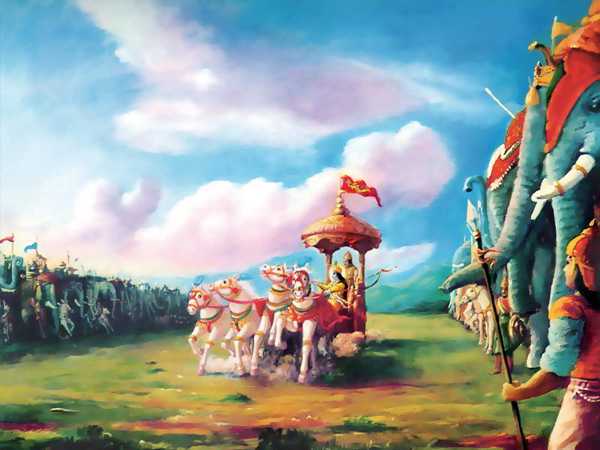Chapter 64

“Vidura said, ‘We have heard, O sire, from old men, that once on a time afowler spread his net on the ground for catching feathery denizens of theair. And in that net were ensnared at the same time two birds that livedtogether. And taking the net up, the two winged creatures soared togetherinto the air. And seeing them soar into the sky, the fowler, withoutgiving way to despair, began to follow them in the direction they flew,Just then, an ascetic living in a hermitage (close by), who had finishedhis morning prayers, saw the fowler running in that manner hoping stillto secure the feathery creatures. And seeing that tenant of the earthquickly pursuing those tenants of the air, the ascetic, O Kaurava,addressed him in this Sloka,–O fowler, it appears very strange andwonderful to me that thou, that art a treader of the earth, pursuest yeta couple of creatures that are tenants of the air. The fowler said,’These two, united together, are taking away my snare. There, however,where they will quarrel they will come under my control.’
“Vidura continued, ‘The two birds, doomed to death, soon afterquarrelled. And when the foolish pair quarrelled, they both fell on theearth. And when, ensnared in the meshes of death, they began to contendangrily against each other, the fowler approached unperceived and sizedthem both. Even thus those kinsmen who fall out with one another for thesake of wealth fall into the hands of the enemy like the birds I havecited, in consequence of their quarrel. Eating together, talkingtogether,–these are the duties of kinsmen, and not contention under anycircumstances. Those kinsmen, that with loving hearts wait on the old,become unconquerable like a forest guarded by lions. While those, O bullof the Bharata race, that having won enormous riches nevertheless, behavelike mean-minded men, always contribute to the prosperity of their foes.Kinsmen, O Dhritarashtra, O bull of the Bharata race, are like charredbrands, which blaze up when united but only smoke when disunited. I willnow tell thee something else that I saw on a mountain-breast. Havinglistened to that also, do, O Kaurava, what is for thy best. Once on atime we repaired to the northern mountain, accompanied by some huntersand a number of Brahmanas, fond of discoursing on charms and medicinalplants. That northern mountain, Gandhamadana, looked like a grove. As itsbreast was overgrown on all sides with trees and diverse kinds ofluminous medicinal herbs, it was inhabited by Siddhas and Gandharvas. Andthere we all saw a quantity of honey, of a bright yellow colour and ofthe measure of a jar, placed on an inaccessible precipice of themountain. That honey, which was Kuvera’s favourite drink, was guarded bysnakes of virulent poison. And it was such that a mortal, drinking of itwould win immortality, a sightless man obtain sight, and an old man wouldbecome a youth. It was that those Brahmanas conversant with sorcery spokeabout that honey. And the hunters’ seeing that honey, desired, O king, toobtain it. And they all perished in that inaccessible mountain-caveabounding with snakes. In the same way, this thy son desireth to enjoythe whole earth without a rival. He beholdeth the honey, but seeth not,from folly, the terrible fall. It is true, Duryodhana desireth anencounter in battle with Savyasachin, but I do not see that energy orprowess in him which may carry him safe through it. On a single carArjuna conquered the whole earth. At the head of their hosts Bhishma andDrona and others were frightened by Arjuna and utterly routed at the cityof Virata. Remember what took place on that occasion. He forgiveth still,looking up to thy face and waiting to know what thou wouldst do. Drupada,and the king of Matsyas, and Dhananjaya, when angry, will, like flames offire urged by the wind, leave no remnant (of thy army). O Dhritarashtra,take king Yudhishthira on thy lap since both parties can, under nocircumstances, have victory when thy will be engaged in battle.'”




